Venice is a city that dazzles everyone who enters. It glows sparkles and surprises. But behind all that shimmer and shine are all those same dark corners and less-than-perfect experiences. To make the most of your visit to Venice, it’s important to know what not to do and what to do instead. In this guide, we’ll share ten things NOT to do in Venice and give you some alternative suggestions for how to make the most of your time in this charming city. From avoiding crowded tourist hotspots to respecting local customs, you’ll learn how to navigate Venice like a local and discover some of the city’s true hidden gems.
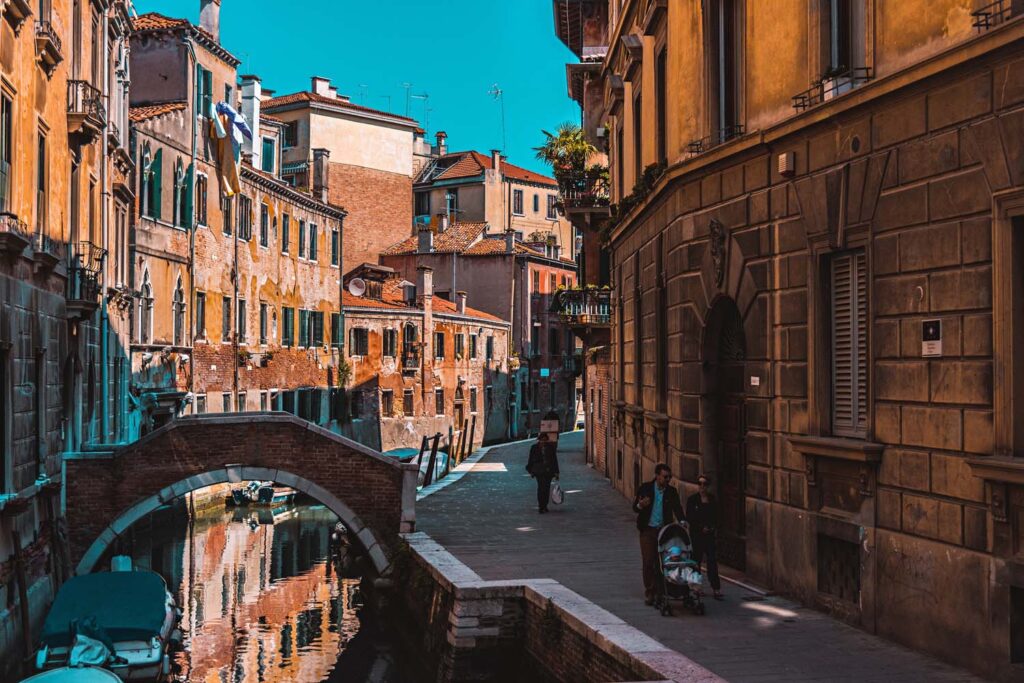
- Don't Ride the Gondolas
- Don't Limit Yourself to Just the Island of Venice
- Don't Expect (free) Public Washrooms
- Don't Bring Heavy Luggage
- Don't Stress About Getting Lost
- Don't Visit on the Weekends or in Summer
- Don't Eat in St. Mark's Square
- Don't Dine using a 'Tourist Menu'
- Don't Take a "Free Glass Factory Tour" in Murano
- Don't Miss the BIG Attractions By Forgetting to Plan in Advance
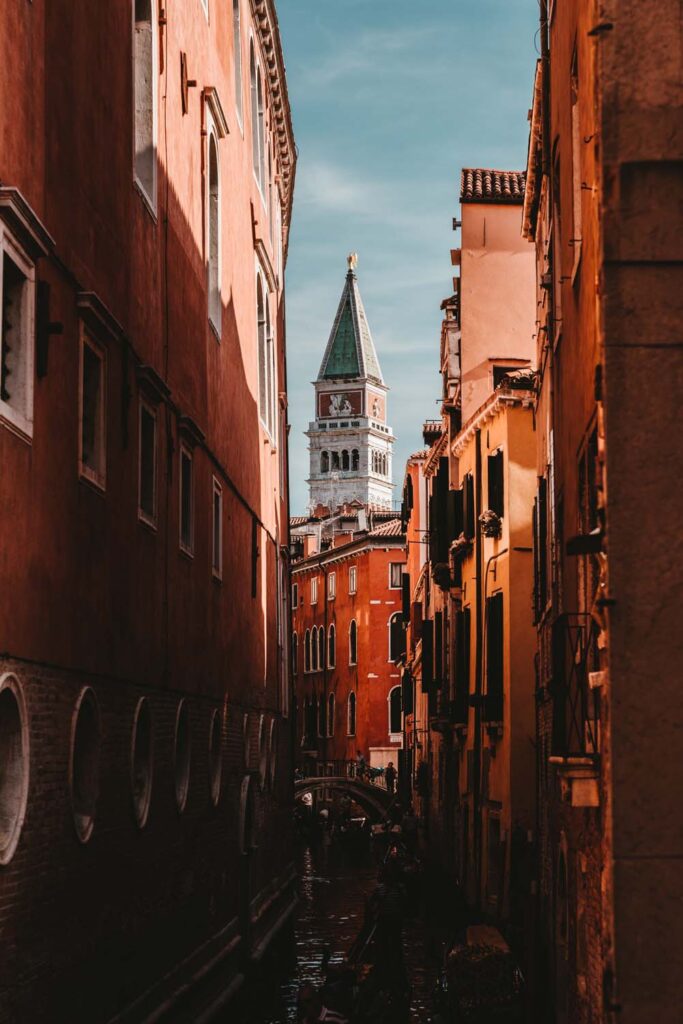
Don’t Ride the Gondolas
Gondolas are one of the most iconic images of Venice, and watching the black and white striped Gondoliers cruise up and down the canals inside their red velvet-lined boats is not to be missed. What you can miss is riding inside of them. While the dream of riding inside a gondola might seem the ultimate Venetian bucket list experience, the reality is much less dreamy. Gondolas cost at least €80 ($90 USD) for 30 minutes, and the price only goes up after 7 pm. Sure, you can cram up to five or six people inside the gondolas to try to split it with another two couples on the search for romance in Venice, but trust me, the awkward 30 minutes jammed inside a small gondola with strangers isn’t as romantic as you think.
And it costs even more if you want a gondolier who will do all that beautiful singing you’ve heard so much about. Ultimately, those euros could be spent much better on a romantic dinner along a quaint canal. If you place yourself anywhere near these secluded canals, you still get to enjoy all that beautiful singing for yourself without paying a dime.

Instead: Jump on one of the local vaporettos
If you’re dead-set on stepping into a gondola to check it off your bucket list, try a ‘traghetto‘ instead. A ‘Traghetto‘ is Italian for ‘ferry,‘ and these small, black gondolas ferry passengers across the Grand Canal at seven different points. Just from one side to the other. These were used for generations before the construction of the Grand Canal bridges. They cost only €2 and are still used by locals who don’t want to waste their time walking all the way to a bridge to get across. Although the ride might be short, it’s a great way to experience riding inside a gondola without the enormous price tag. The boats are almost exactly the same as the private gondolas, just maybe missing the frills.
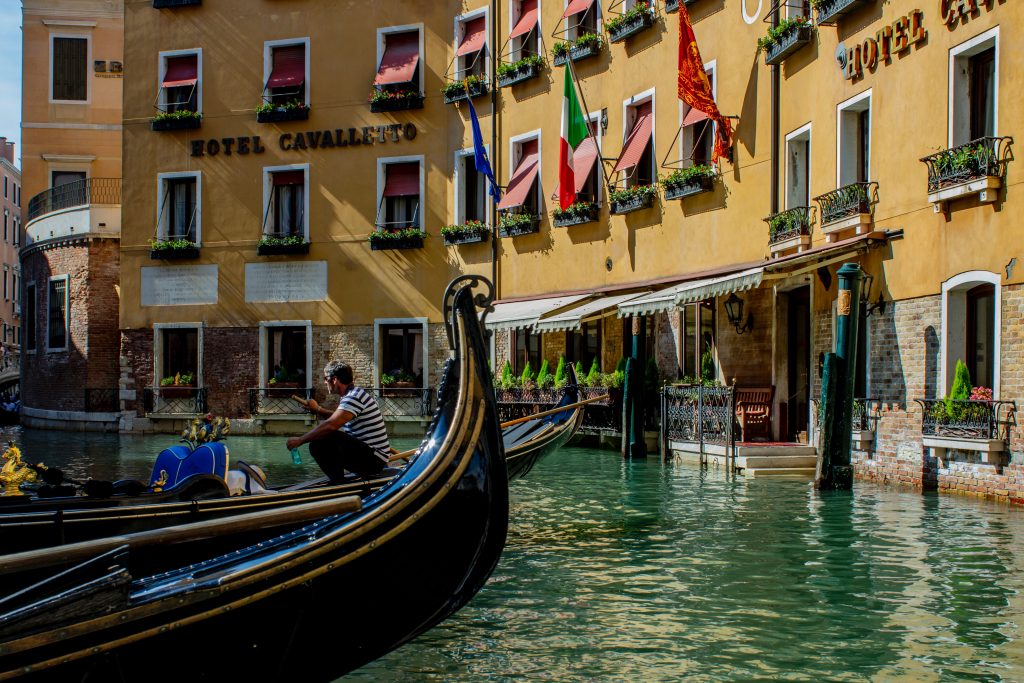
Don’t Limit Yourself to Just the Island of Venice
Many people arrive by cruise ship onto the island of Venice and never leave its shores. More people pour in from the train station and don’t think of heading outside the Grand Canal once they arrive. While there are many beautiful things to do in Venice, it’s a great shame to make it down here and not visit at least one other of the surrounding islands.
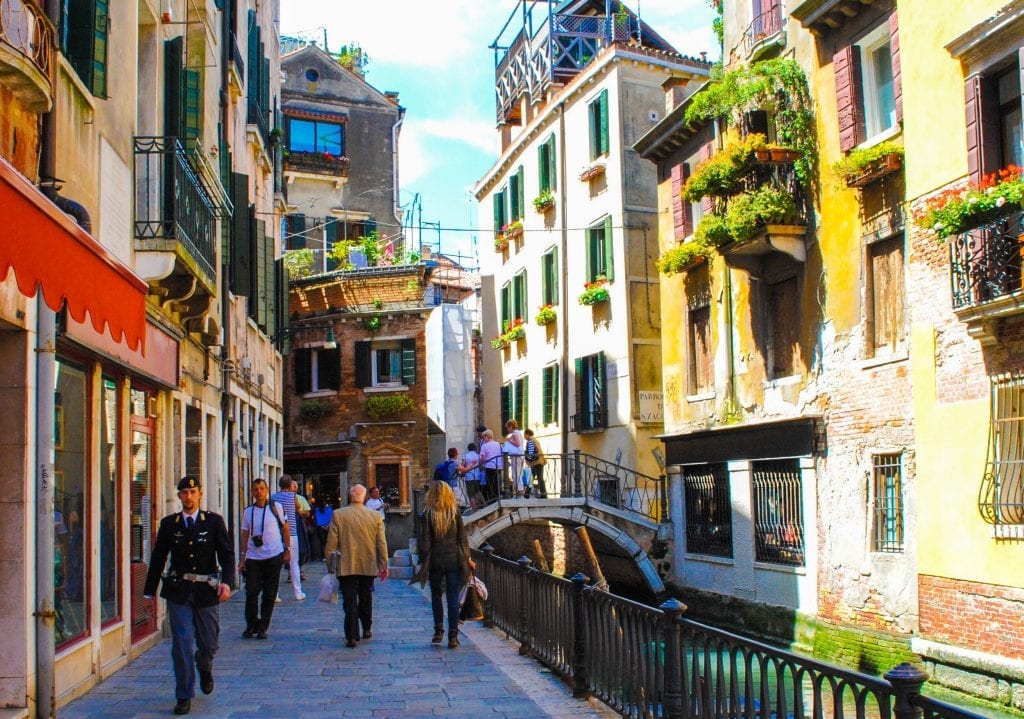
Instead: Explore the islands of Burano and Murano
Burano and Murano are accessible by a 45-minute ride across the water on one of the public vaporetto boats. Visiting the island is a treat, and the journey out there is a great way to experience the beautiful ocean and surrounding scenery. The islands are crucial to Venice’s art, food, history and culture. Each has its distinctive flair and feeling, vastly different from the glamour and grandiosity of central Venice. You trip won’t be the same without making it out to experience these amazing spots.
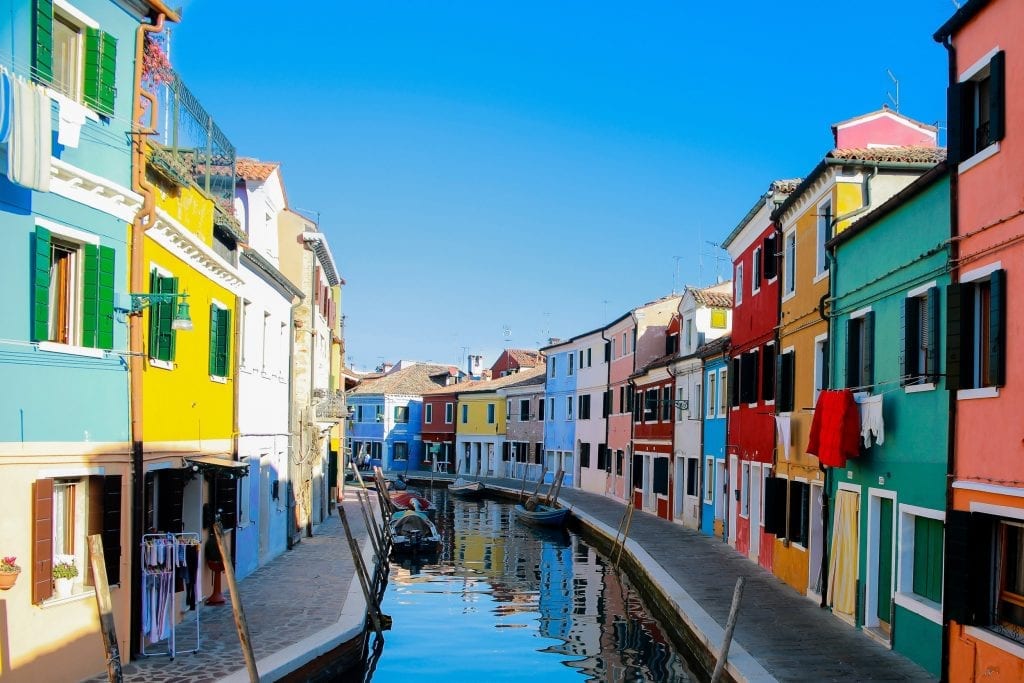
Don’t Expect (free) Public Washrooms
Public washrooms aren’t a thing in Venice. The city, now one of Europe’s most popular tourist spots, wasn’t built to be one. And as such, there is a significant shortage of public washrooms. The only truly “public” washrooms aren’t free of charge. Sometimes, they can cost up to €2. And while you can usually spare this the odd time, these costs can add up.
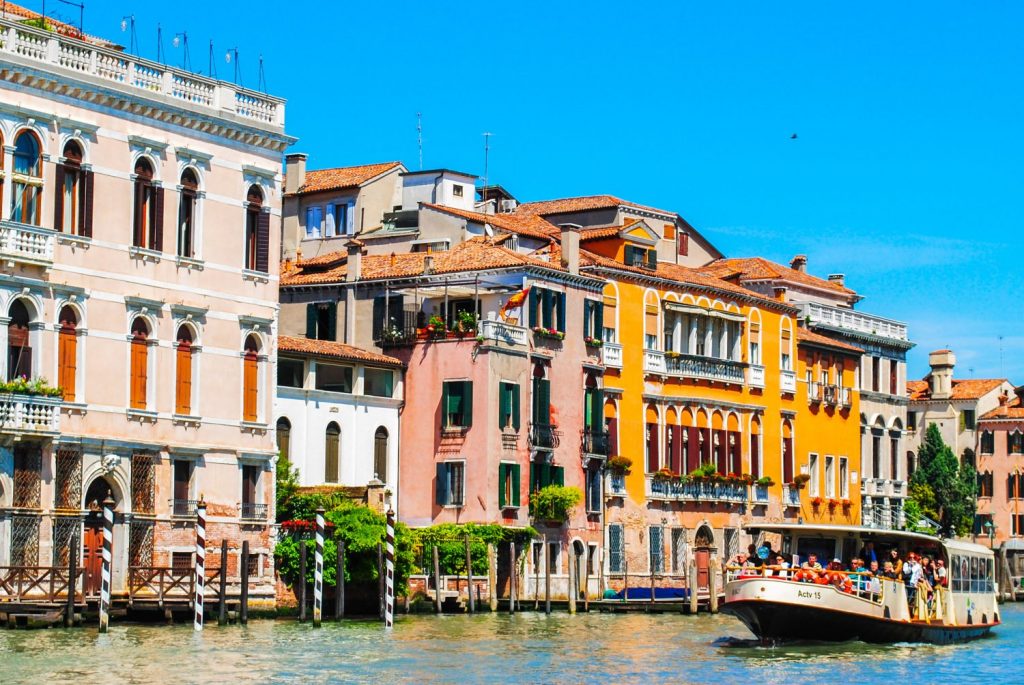
Instead: Find a local coffee or gelato shop
Head into a local coffee or gelato shop and spend that €2 on getting a delicious espresso or refreshing gelato. After making your purchase, ask to use their restroom, and they’ll be more than accommodating since you’ve already purchased something. Visiting these local restaurants is a much better use of your money than just flushing it down the toilet.
Don’t Bring Heavy Luggage
Many travellers will repeatedly be told not to bring roller bags or heavy luggage to small European towns. But this advice is never more valid than in Venice. Packing those heavy, rolling suitcases will be a nightmare here. There are no cars which you can throw your bags into to make their way to your hotel quickly. Walking down cobblestone streets with a rolling suitcase makes enormous noise. Which the locals are not a fan of. Even if you can get a private water taxi, unless your hotel is right on the Grand Canal, you’ll still have to walk a fair way from the nearest boat dock to your accommodation. And these private water taxis cost €13 upfront, plus another €1.80 for each minute of travel. Less reputable boat drivers will often charge you per piece of luggage.
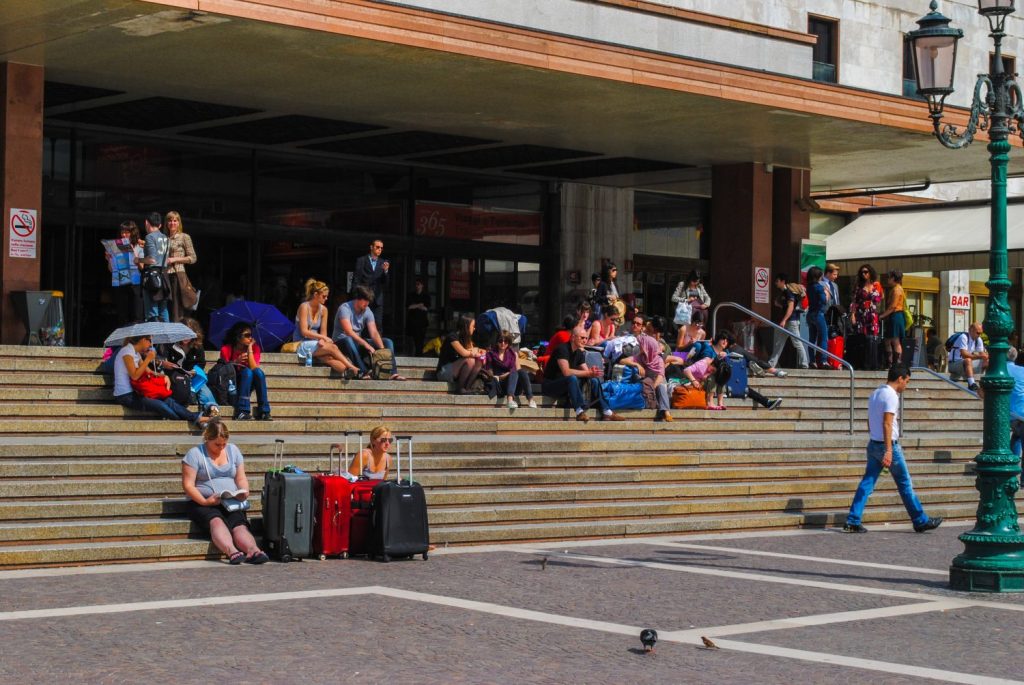
Instead: Travel Light or Store Your Luggage
Now I’m not a light packer by any means, but I know when it needs to be done! And choosing to pack light made all the difference in the world when visiting Venice. But there is another solution for those who are excited to bring back boatloads of souvenirs but don’t want to be limited to a small backpack. You can always store your large suitcase in the luggage lockers at the Venice train station when you arrive. And transfer the essentials into a small carrying bag and you’ll be on your way! This will allow you to shop to your heart’s desire but will give you the freedom of getting to and from your destinations without any stress or struggle.
Don’t Stress About Getting Lost
Following maps on paper or via google maps is very difficult in a city like Venice. Sometimes the pathways are quite literally underwater. During the wet season in Venice, vast portions of the city get flooded, and raised paths are used to get around safely. But not everywhere has these raised walkways, so often streets will simply shut down, and you must take complicated detours. Venice’s streets will notoriously change their name halfway along, sending tourists into a tizzy. But don’t stress. Venice is a small island. Walking from one end to the other only takes about an hour, so you’re never that far away from where you want to end up.
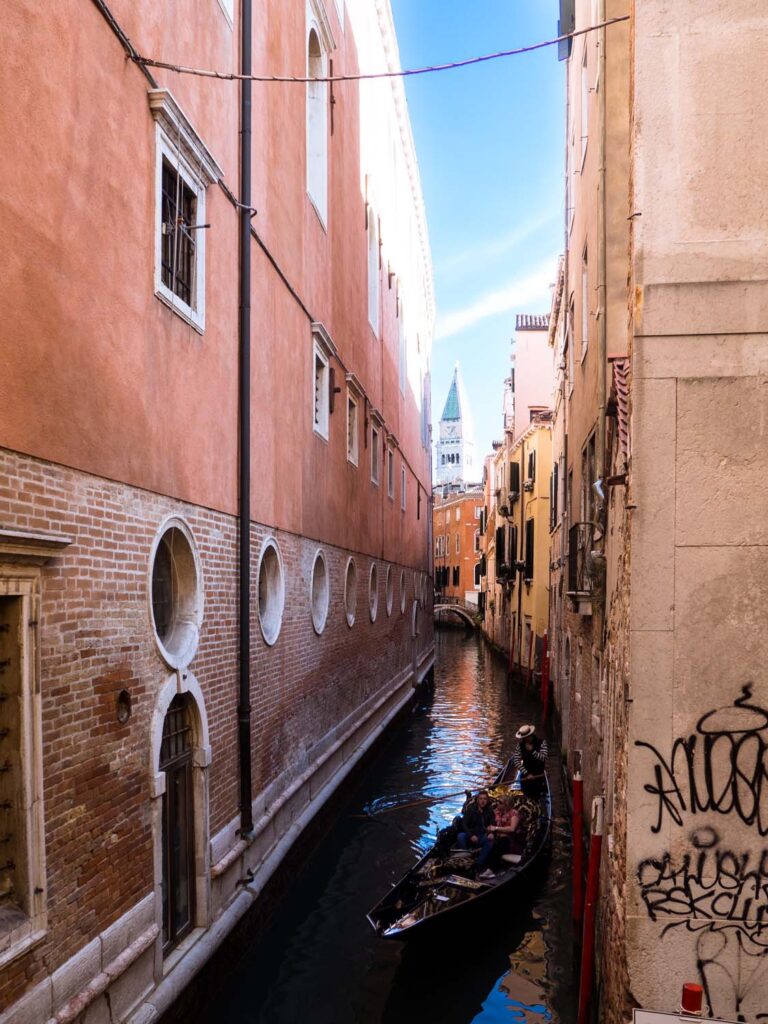
Instead: Embrace the Wander
Keep in mind if you’re headed in the right general direction, you’ll eventually make it there. Learn to love exploring and find little treasures along hidden passageways. These are the fantastic discoveries about Venice which make it so unique. I would even challenge you to spend an entire day without your phone guiding you. Use that simple paper map you get at tourist information and see how far that gets you. When you get “lost,” just ask a local for directions. While you’re at it, ask them for a dinner or food recommendation and see if you can start a conversation. Locals might bristle at tourists initially (they are, after all, overrun with them) but they LOVE their city. And are incredibly giving and kind when they see someone genuinely trying to engage.
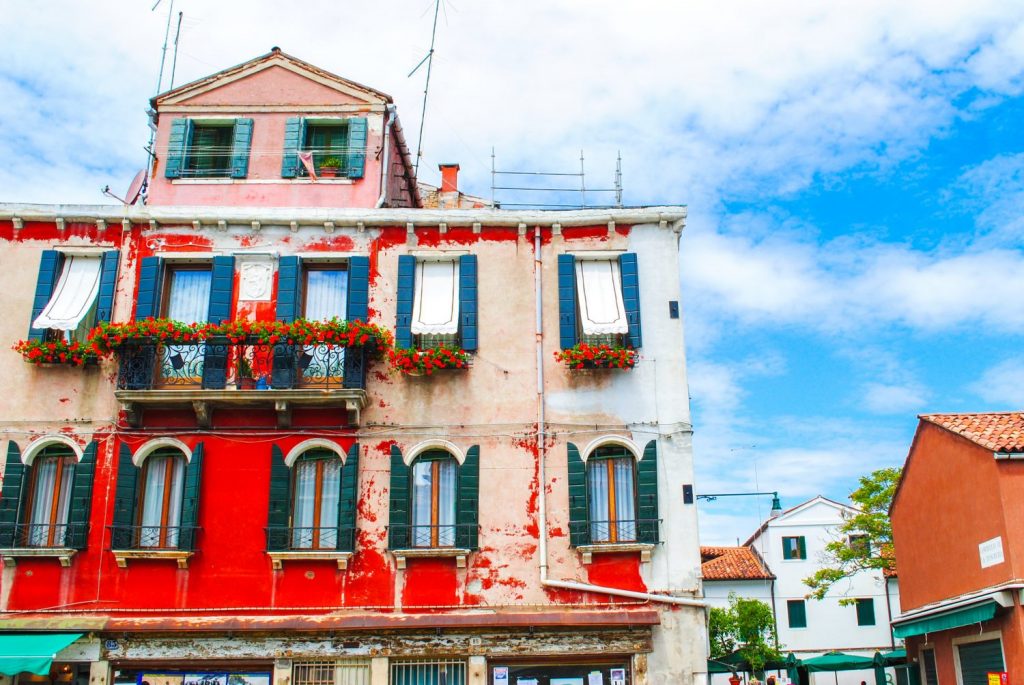
Don’t Visit on the Weekends or in Summer
If you have the option of when you can visit Venice, try not to visit on the weekends. This is not only because there will be a massive influx of tourists but because many of the main tourist sights (like churches and cathedrals) are closed for local services. Hotels will also be much more expensive during the weekends as even Italians travel on these days a weekend mini-breaks.
If you want to enhance your experience, avoid travelling during the summer. Summers in Venice are incredibly muggy as it’s so close to the seaside. The crowds make the temperatures seem ten times hotter than it is really is. Cruise ships are in and out of the ports, and the weight of these daytrippers can be felt not only on the ground but in the local’s attitudes.
One of the comments I always hear about Venice is that it smells. And yes, those old swampy canals can smell in the summer heat. But that’s just like any other large city in the summer. New York’s piled-up garbage is no picnic in 40-degree weather, either. Don’t blame the city, blame the sun.
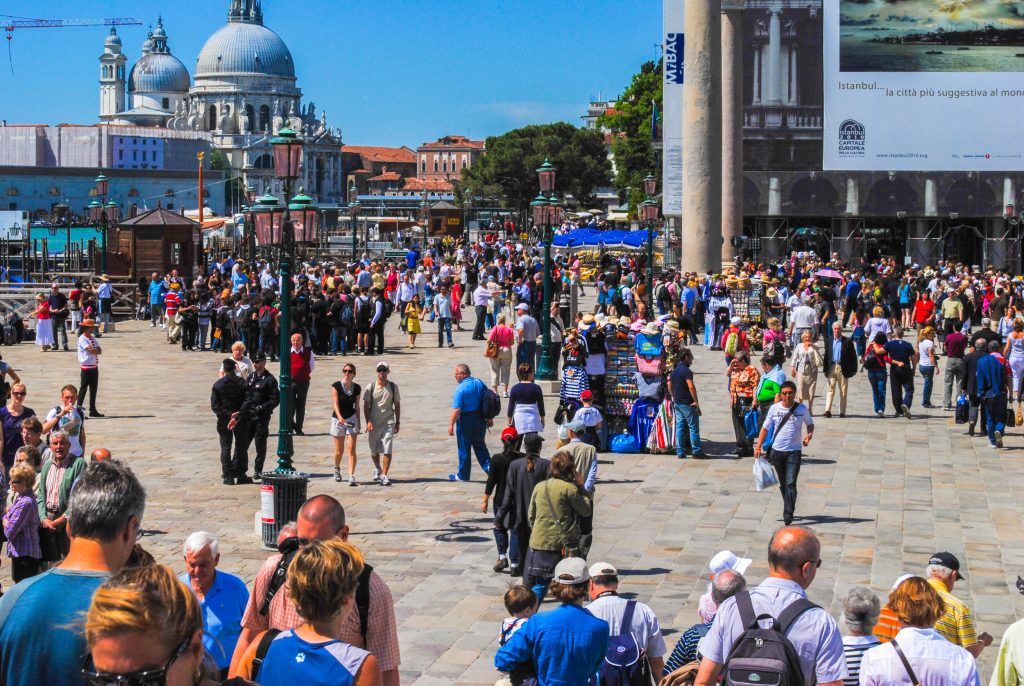
Instead: Visit Venice in its offseason
Pack warmly and visit Venice in the winter. You’ll be shocked to see how different the city is compared to the stories of those who came in the summer. Winter in Venice is a strangely magical place. The city’s locals seem to come alive, despite the colder weather. The silent side canals and ancient architecture shuddering in the brisk wind are hauntingly beautiful and well worth checking out. The spring and fall are equally stunning, but you’re better off coming in the fall when you can avoid flooding that plagues the springtime.
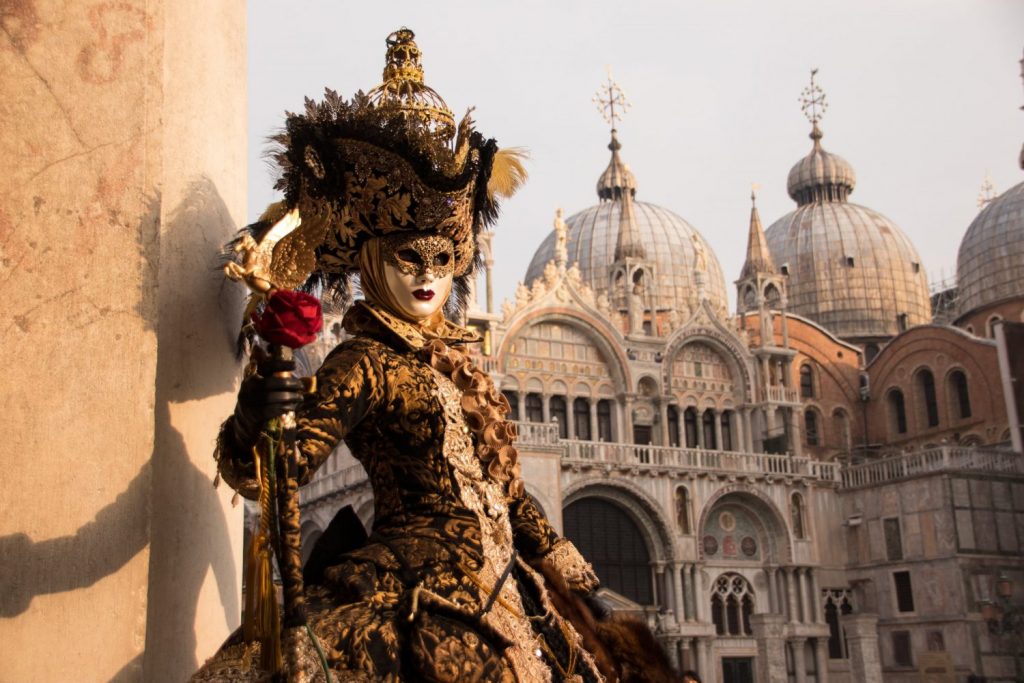
Don’t Eat in St. Mark’s Square
Restaurants in any big city, especially near those HUGE tourist attractions, are rife with scams. And many overcharge customers to a staggering degree. Those beautiful cafes in St. Mark’s square, which make for lovely photographs, should be avoided at all costs. Mainly due to those costs. These cafes are overpriced and tack on a “sitting” surcharge simply because of the location.
Anytime you enter a cafe, ask if there is a “cover charge.” If you ask, they must fess up to this, so never be embarrassed. If the cover charge isn’t too bad and you feel like the overpriced drinks are worth the view, then absolutely go right ahead. But to save yourself a surprisingly large bill, always check before sitting down.
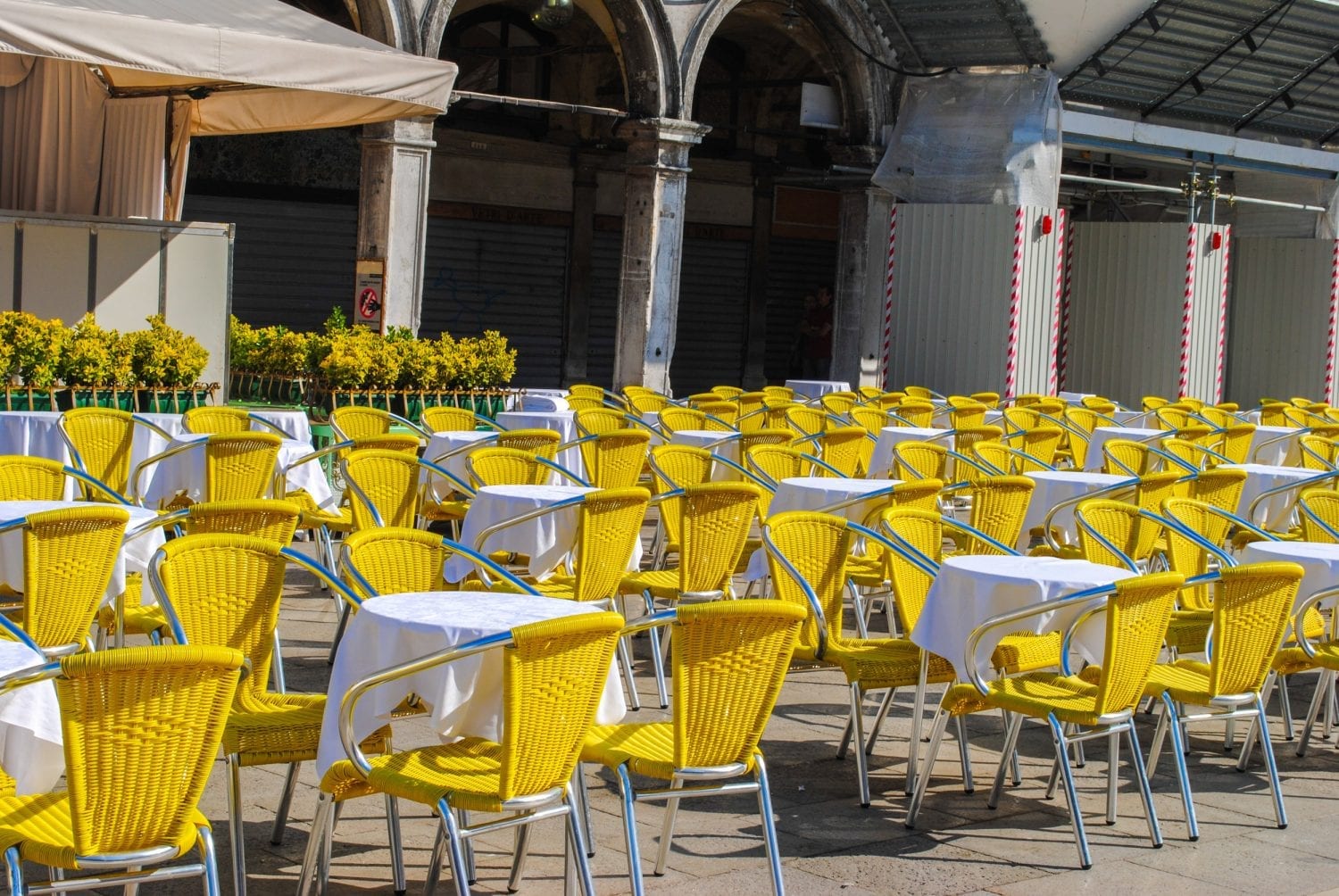
Instead: Head down any small side street adjacent to St. Mark’s
It’s always incredible to me the fantastic places you can find just steps away from the crowded tourist traps. Look for locals migrating, and you’re heading in the right direction.
If you’re insistent on eating at one of those picturesque restaurants, ask for their “al banco” or bar menu. This menu is often a completely different price point compared to their “al tavolo” or table menu. The only caveat is you’ll have to sit or stand at the bar. But sometimes I find this the best seat in the house as you get to watch the cooks or bar tenders at work and decipher the most popular dishes you yourself might want to try.
Don’t Dine using a ‘Tourist Menu’
Venice was perhaps the city in Europe where I saw the most prominent use of “tourist menus.” It is no secret that Venice isn’t the place to come for the best Italian cuisine, but there are incredible meals. If you know where to look. But Tourist menus are truly the worst ways to experience Venetian cuisine. They are built up of easy-to-please, faux-Italian meals. It’s watered-down cooking and mediocre at best. Avoid menus printed in various languages; although this is very inclusive, it often denotes that it’s not a traditional or local restaurant.
Also, be wary of anything that comes for “free.” Venice has been notorious for putting platters of oysters down in front of customers who didn’t order any without saying a thing. Assuming it’s perhaps a free entree, tourists gobble them up. Then at the end of the meal, you get an unexpected bill. If anything arrives at your table that you didn’t order, question it immediately. If they bring up some unspecific cost, say, “no, thank you,” and send it back!
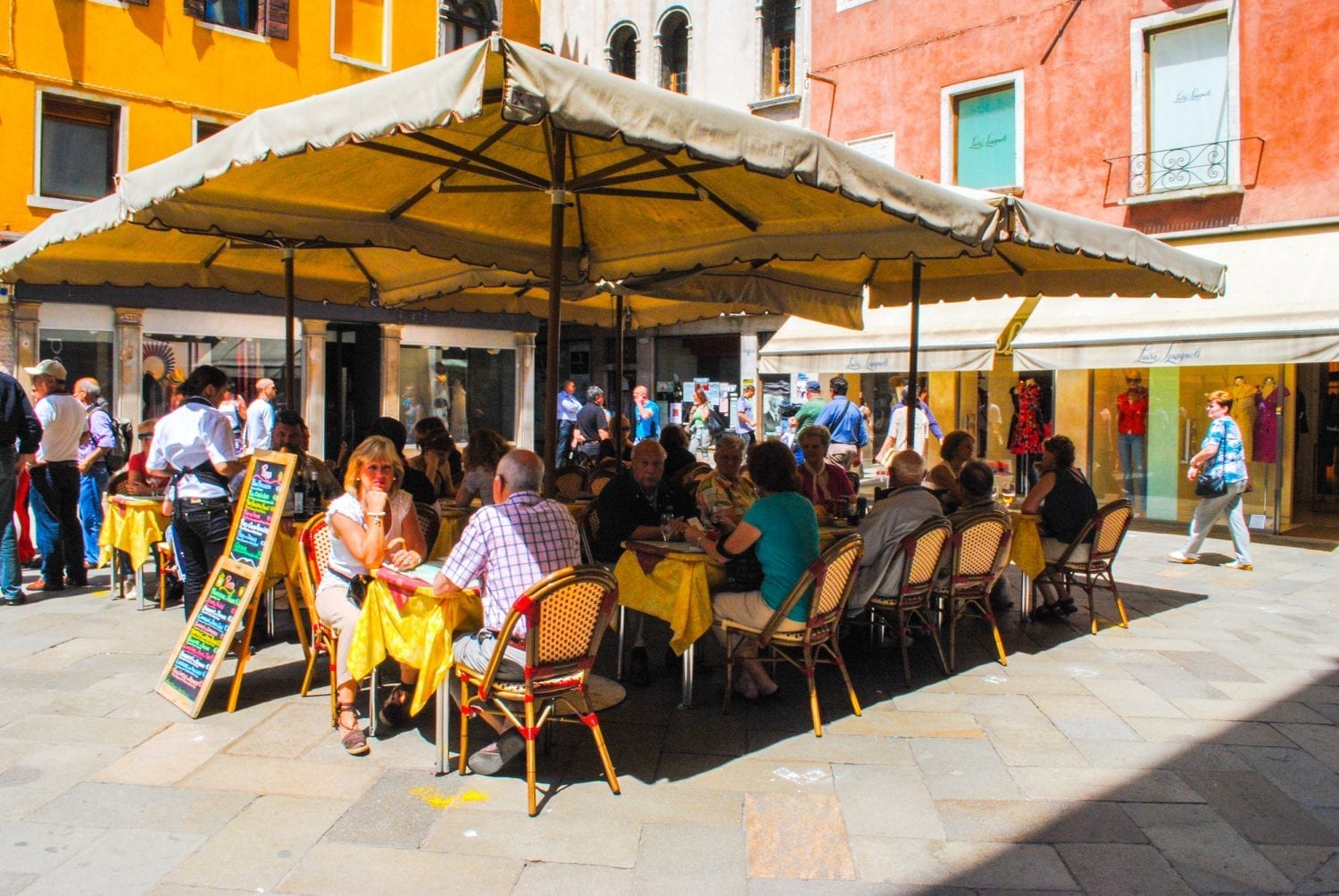
Instead: Look for Handwritten Italian menus
The key to finding a good restaurant in Venice is looking for one without a paper menu at all. Just a chalkboard where they write their daily specials, using only the fresh catch of the day. Even if you don’t speak Italian, there are always a few words you can learn to identify what different dishes contain. As you tour around Venice, check out what the locals are eating and be sure to order that. A few local specialties in Venice are deeply rooted in their proximity to the ocean. Try any seafood-based risotto like moleche (small green crabs), which are popular in the springtime. Or creamed dried cod spread across fresh bread. And ‘Bigoli in salsa‘ is an appetizer pasta made using only three ingredients; onion, anchovies and white wine. Simple and delicious!
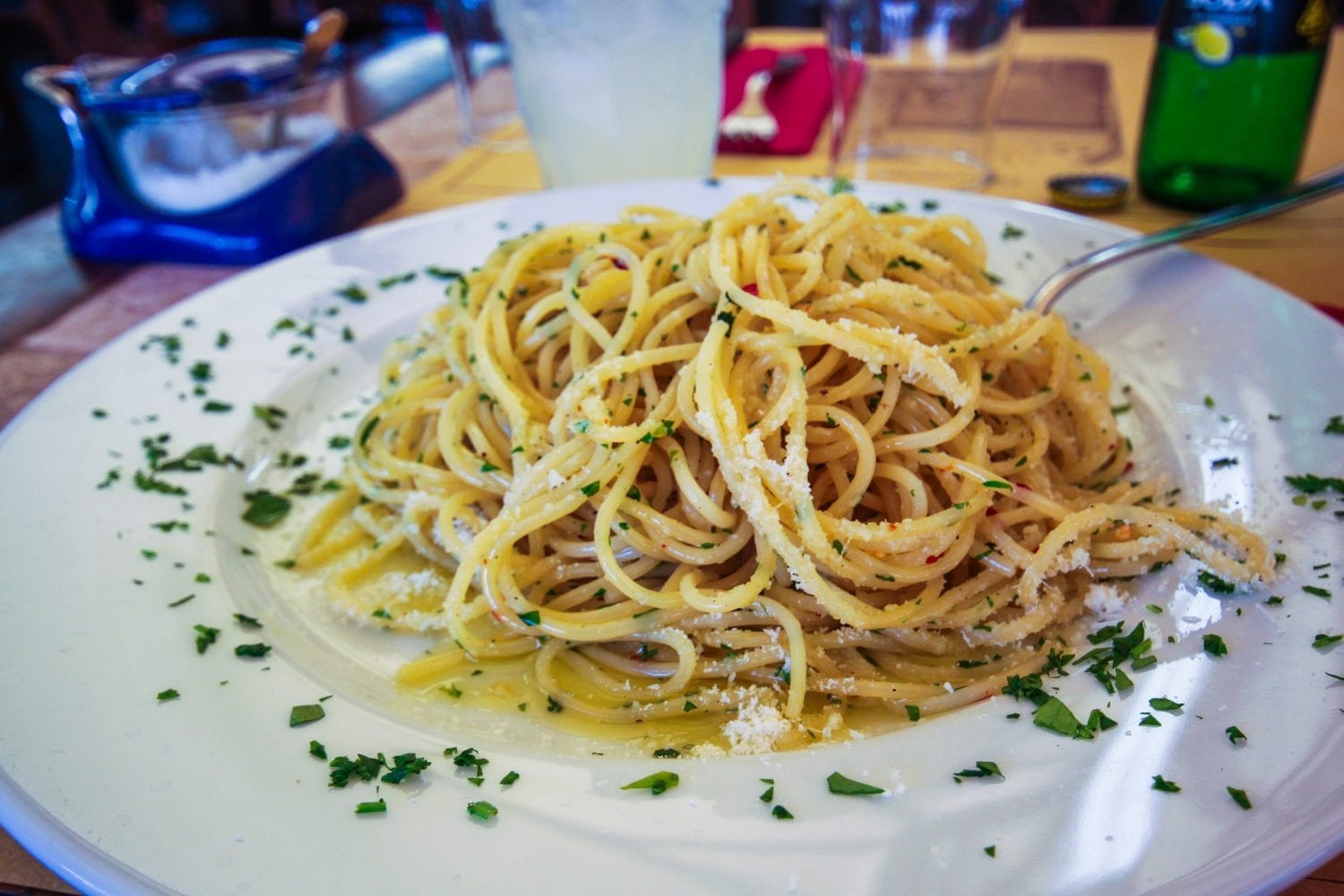
Don’t Take a “Free Glass Factory Tour” in Murano
Venetian glass is renowned all over the world. But with popularity comes those trying to take advantage of just that. Throughout San Marco, you’ll see hawkers advertising “free trips” to Murano to visit glass factories. Remember: nothing in this world is free. These dodgy companies will take you to some less-than-reputable glass factories in Murano. Once you arrive, the salespeople will put immense pressure on you to purchase some of their glass. Often guilting you into it since they provided you with a 45-minute trip to Murano for “free.”
This is not only really stressful but also prevents you from buying a piece of glasswork you genuinely fall in love with. These places are also known for purchasing much of their glasswork from China, and the artisans you see working in the factory are often just there for show. The best way to be sure what you’re buying is real is to check the price; too good to be true is often just that.
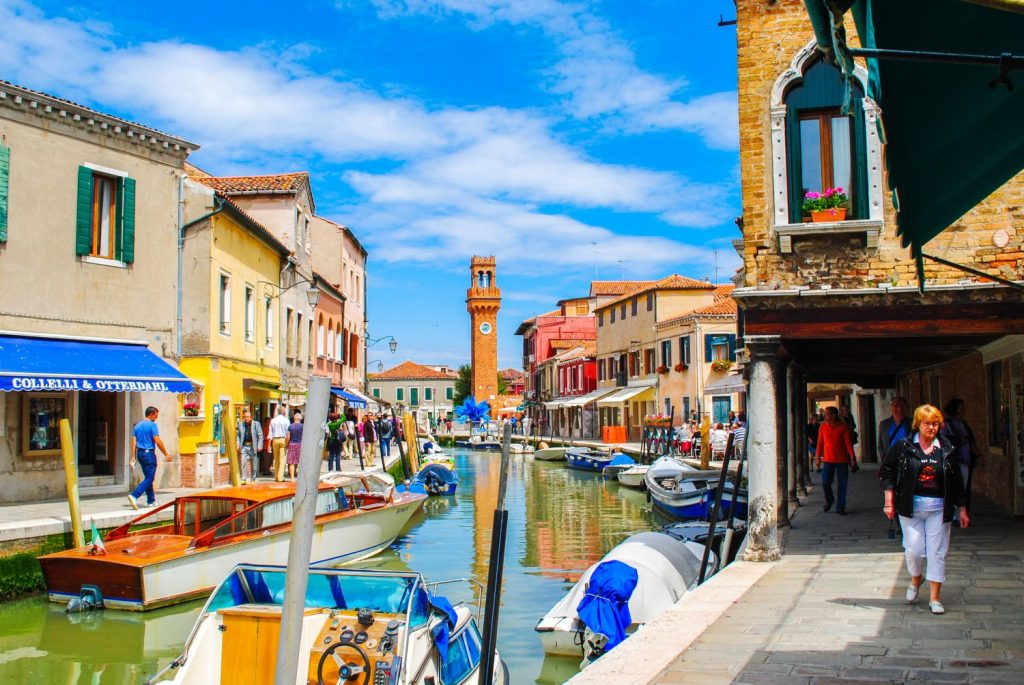
Instead: Take the public ferry to Murano and explore for yourself
The public vaporetto from Venice to Murano costs around €10. Sure, it’s not a “free” trip, but you’ll definitely feel free by being able to explore this gorgeous island on your own. There are dozens and dozens of authentic glass shops in Murano. Each artisan has their own unique style and heritage. Many artists have had the trade passed down from generation to generation.
And not all glass from Murano has to be prohibitively expensive. Sure, there are chandeliers which cost upwards of $100,000, but there are also gorgeous glass earrings which cost less than €10. I bought a few pairs, which are my favourite souvenir of the trip. I even picked the colours and watched the artist make the earrings right before my eyes. A real memory to bring back with me!
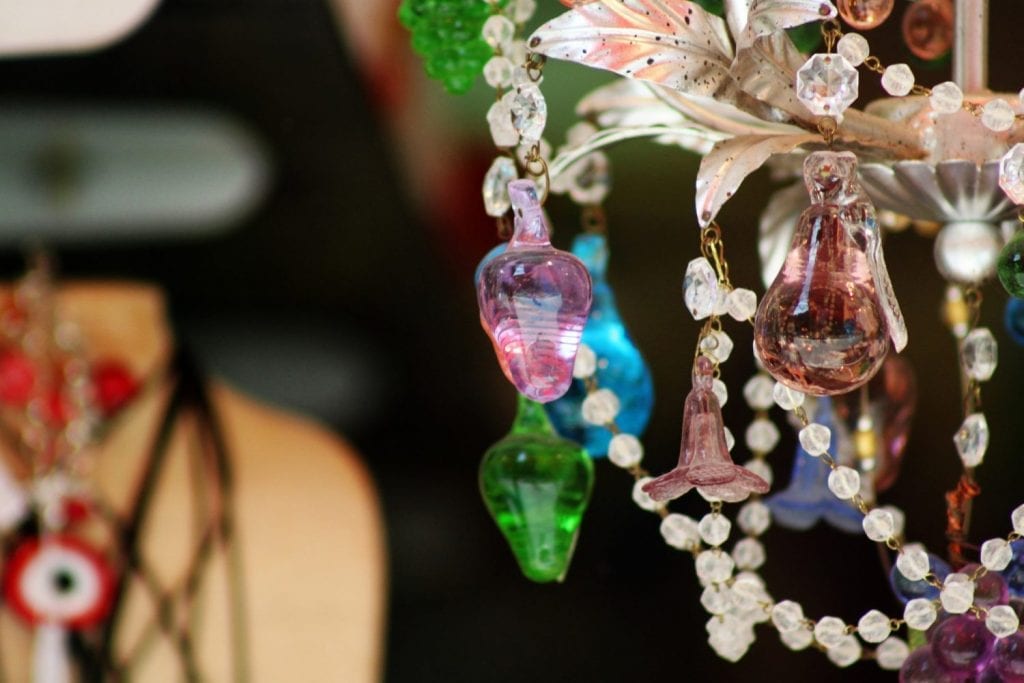
Don’t Miss the BIG Attractions By Forgetting to Plan in Advance
Venice is a small but busy city. Tourism is booming in this historical hub, and no matter when you arrive, there will always be tons of people. If there are one or two attractions you have your heart set on, don’t be shy about booking these tickets in advance. St. Mark’s Basilica ticket MUST be booked in advance. And even advance bookings get sold out sooner than you’d think. Some of the more popular museums often face the same issue during peak season.
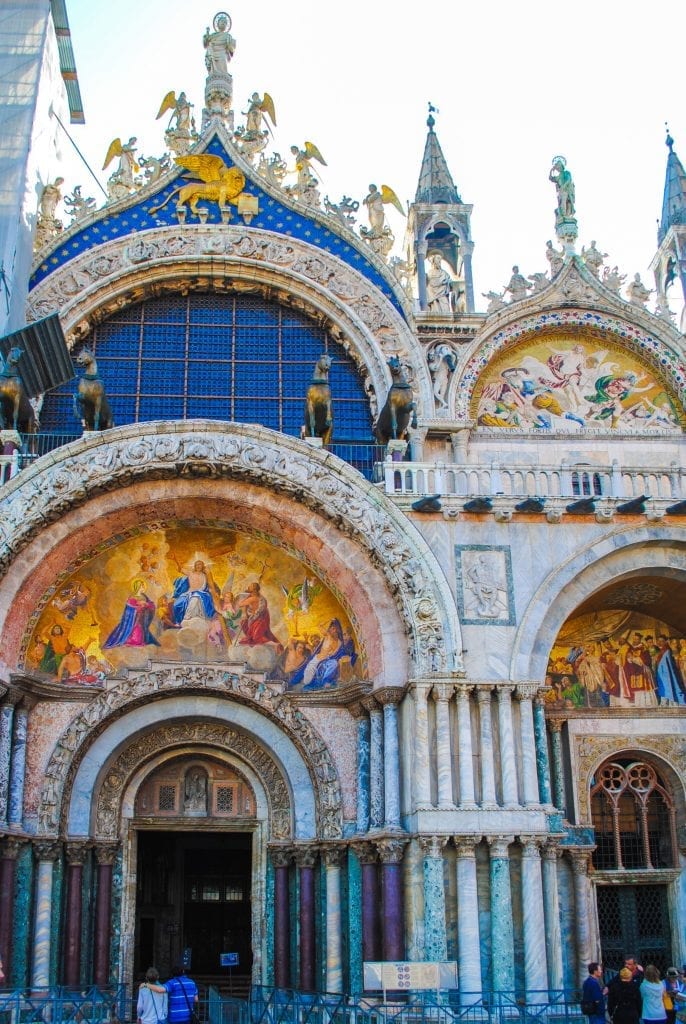
Instead: Book your tickets online in advance
Despite the city feeling trapped in the past, the Venetian tourism industry is smack dab in the 21st century. And all the big attractions and museums offer advanced ticket purchases online from anywhere in the world. This will not only secure the fact you’ll be able to visit a particular place when in town, but also means you’ll be able to bypass the huge lines. Yes, you can always wake up early in the morning to be the first ones at the gate, but it’s your vacation, and you deserve to sleep in and relax! I’d recommend booking these at least two months in advance just to ensure you aren’t disappointed, especially in the summer.
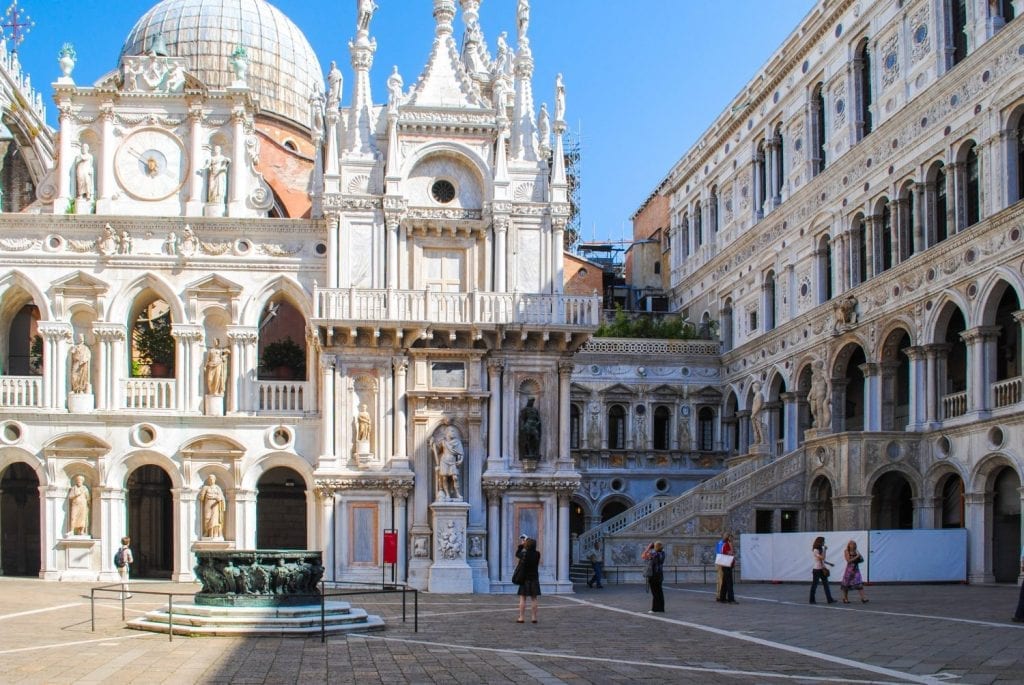
Venice is a city that demands careful planning and thoughtful exploration. By avoiding these 10 common mistakes and embracing the alternative activities suggested, you’ll be well on your way to having an unforgettable experience in this unique and magical city. Remember to take your time, soak in the beauty of your surroundings, and explore beyond the typical tourist hotspots to truly get a sense of what Venice has to offer. By doing so, you’ll gain a deeper appreciation for this incredible destination, and create memories that will last a lifetime. So pack your bags, plan your itinerary, and get ready for an adventure that you’ll never forget!
Happy Travels, Adventurers
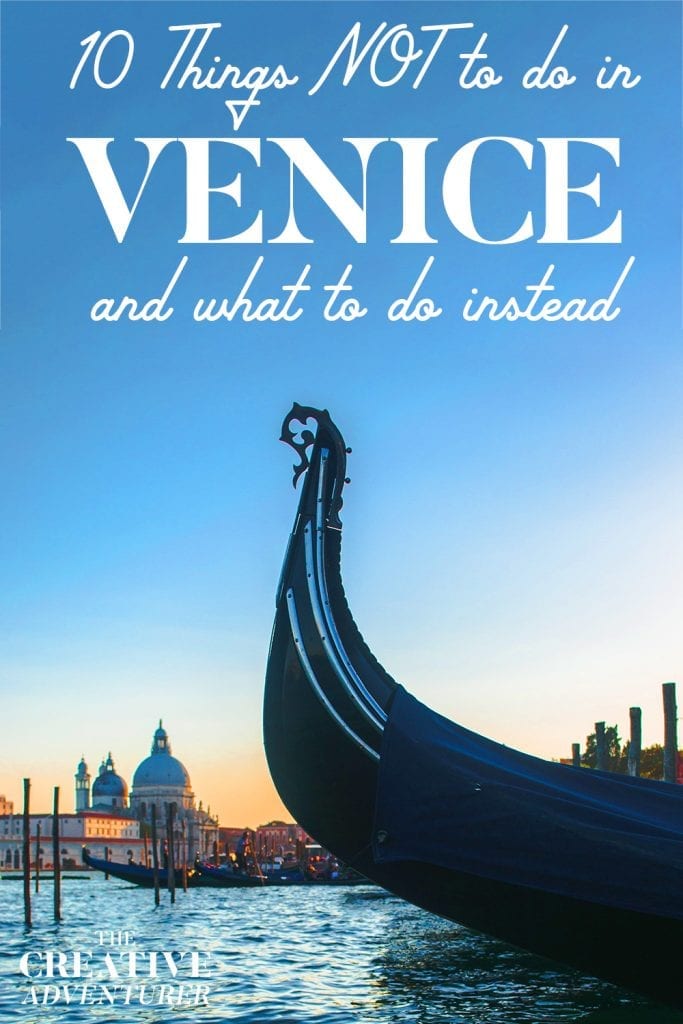
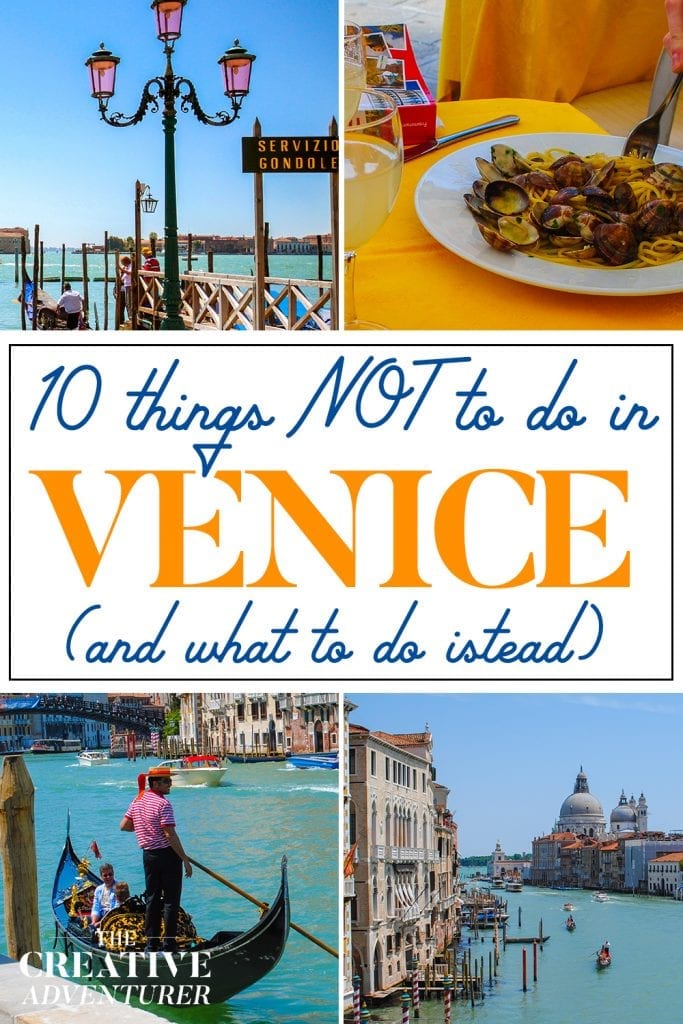


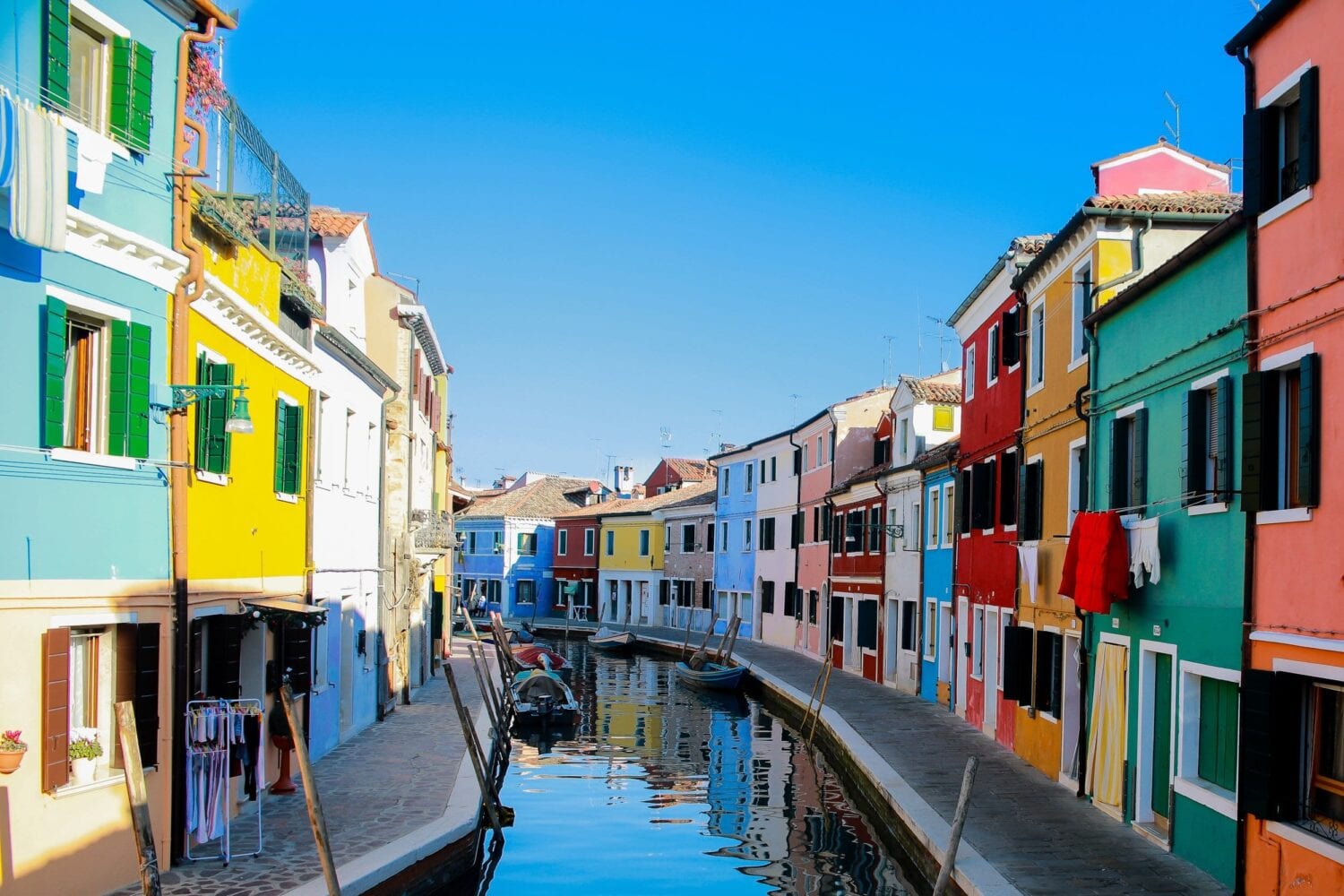
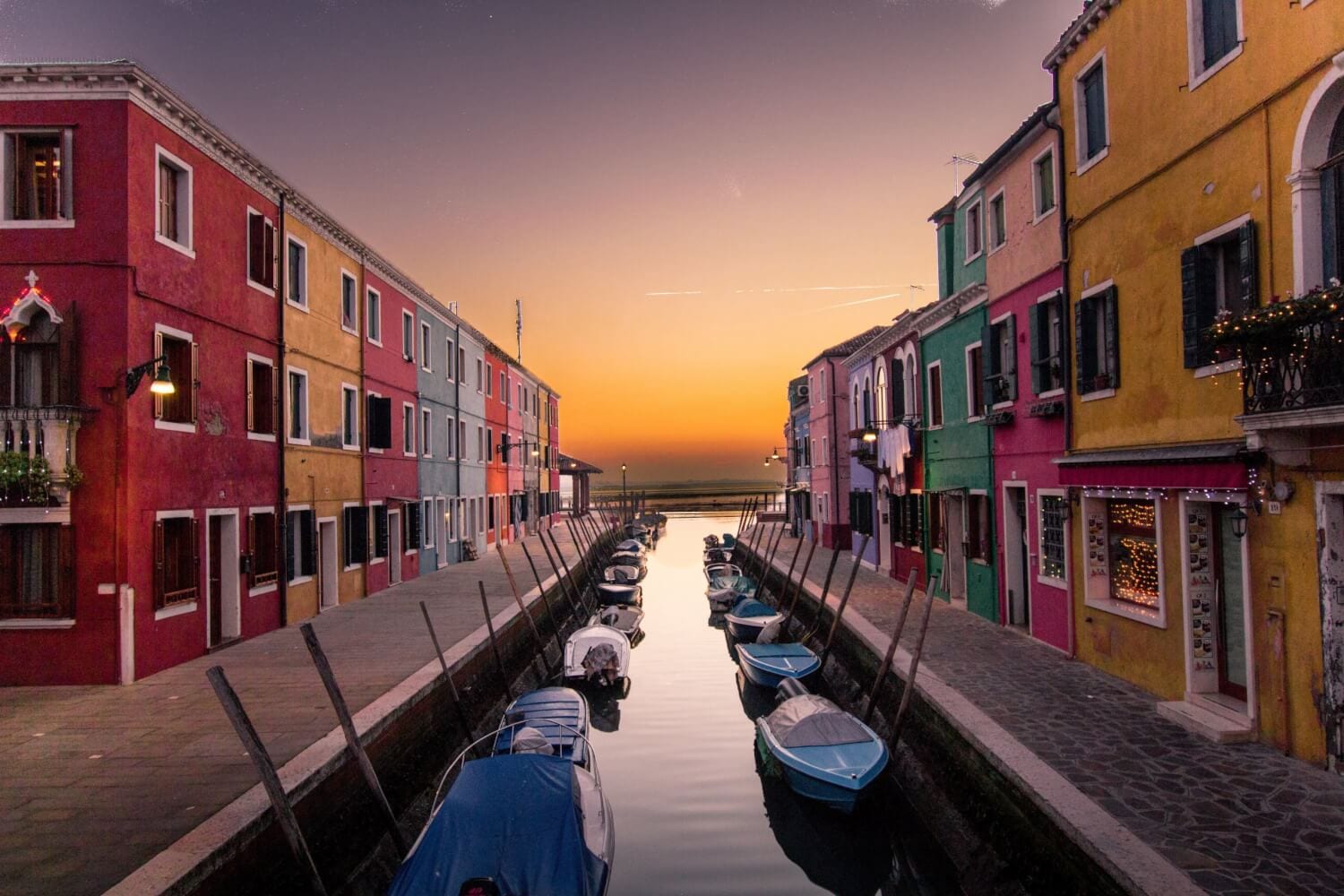
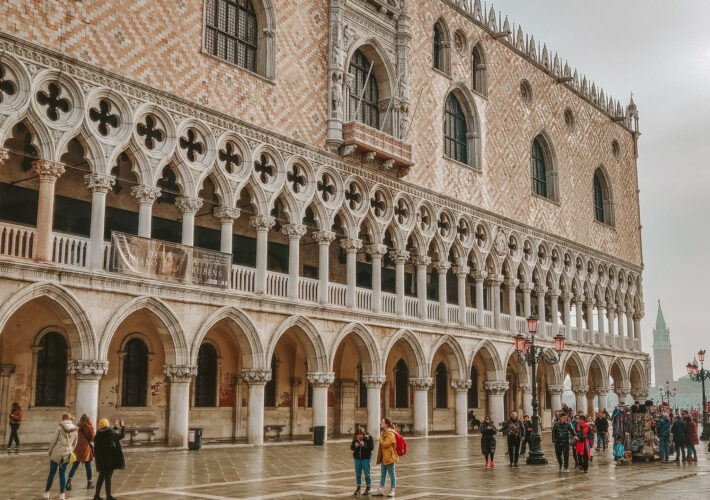
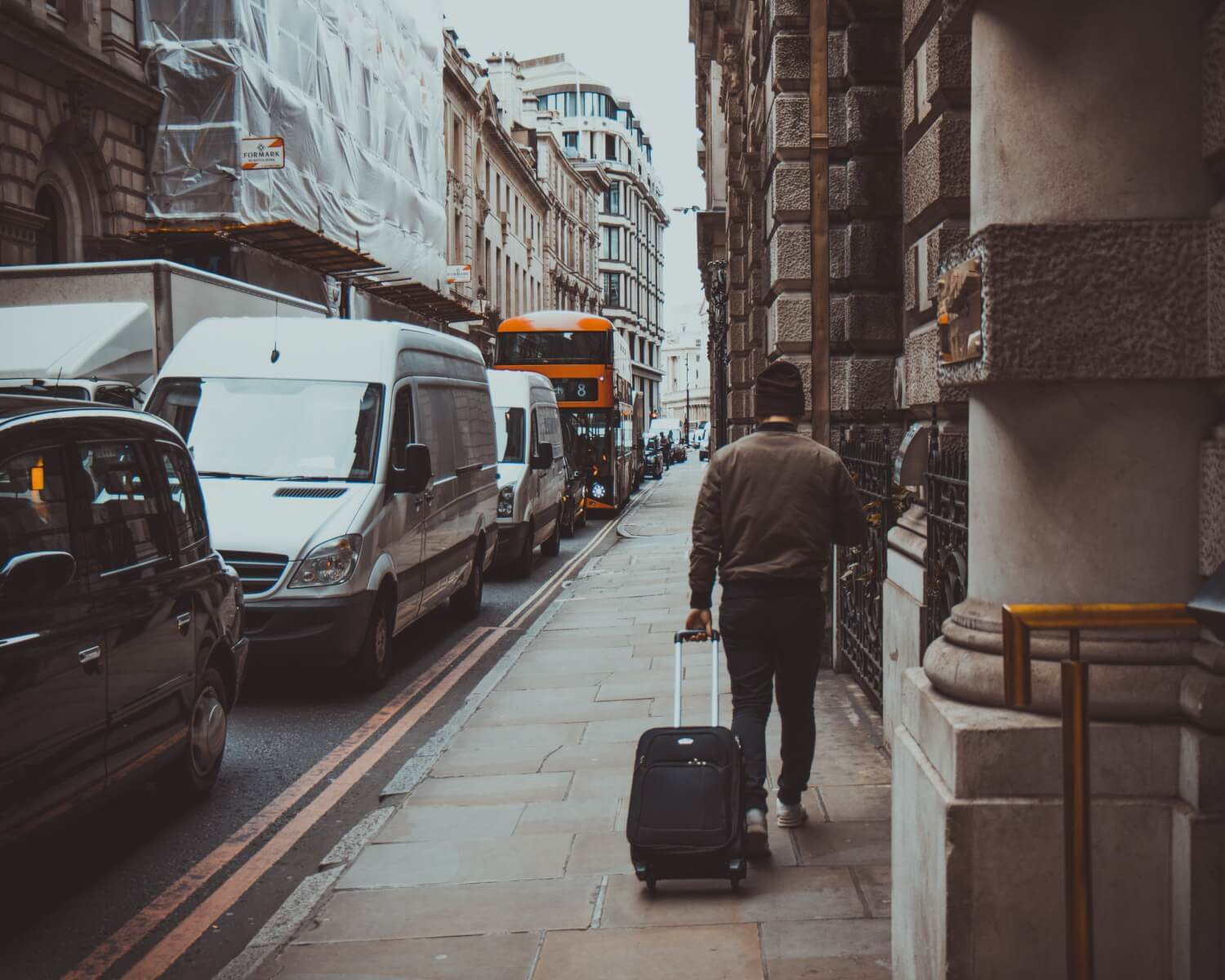
Leave a Comment